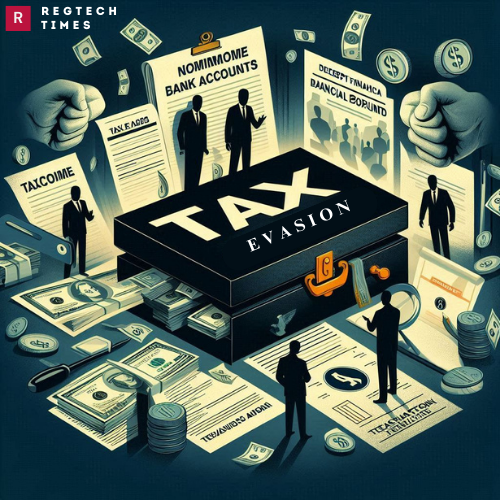In a notable legal development, Brandon Aumiller, a business owner from Milroy, Pennsylvania, has been sentenced to 24 months in prison for his involvement in a sophisticated tax evasion scheme. This case, presided over by U.S. District Judge Christopher C. Conner, highlights the serious consequences of tax evasion and obstruction of justice.
Background on Brandon Aumiller
Brandon Aumiller, who owned an insurance sales business, came under the spotlight of a thorough investigation conducted by the IRS Criminal Investigation Division. The charges against Aumiller involved deliberate failure to pay personal and employment taxes over several years. Specifically, Aumiller filed tax returns for the years 2007, 2009 through 2011, and for certain quarters in 2013 and 2014, acknowledging tax liabilities that he did not settle.
Despite acknowledging his tax debts on paper, Aumiller’s actions went beyond mere oversight. He orchestrated a multi-year scheme aimed at obstructing the IRS’s efforts to collect the taxes owed. This involved a series of deceptive maneuvers, including the use of nominee bank accounts to hide assets, structuring real estate deals to obscure financial transactions, and submitting false financial disclosure forms.
Details of Aumiller’s Fraud
The total amount of tax loss caused by Brandon Aumiller’s fraudulent activities was $478,270. This significant figure highlights the scale of his evasion efforts and the serious impact of such misconduct on the tax system. The IRS, which initially sought to collect the owed amounts, was obstructed by Aumiller’s calculated attempts to mislead investigators and hide his financial reality.
Aumiller’s fraudulent actions included:
- Nominee Bank Accounts: Aumiller set up these accounts to disguise the ownership and control of his assets, effectively masking his financial situation from tax authorities.
- Structured Real Estate Deals: By manipulating real estate transactions, Aumiller aimed to prevent the IRS from detecting the full extent of his financial dealings and assets.
- False Financial Disclosures: Brandon Aumiller submitted incomplete and misleading financial information to the IRS, failing to disclose critical details about his bank accounts and real estate holdings.
Thomas Demergian Sentenced to 4.5 Years for Wire Fraud and Tax Evasion
These tactics not only demonstrate a blatant disregard for tax laws but also an elaborate effort to undermine the IRS’s collection efforts.
Legal Ramifications for Brandon Aumiller
In addition to his prison sentence, Brandon Aumiller was ordered to pay approximately $180,000 in restitution. This financial penalty is intended to partially compensate the United States for the tax loss incurred due to his actions. Furthermore, Aumiller will be subject to three years of supervised release following his incarceration. This period of supervised release will involve close monitoring to ensure compliance with legal and financial regulations.
Acting Deputy Assistant Attorney General Stuart M. Goldberg of the Justice Department’s Tax Division, along with U.S. Attorney Gerard M. Karam for the Middle District of Pennsylvania, announced the sentence. They highlighted the seriousness of Aumiller’s crimes and the dedication of federal authorities to addressing tax fraud. Trial Attorney Matthew L. Cofer of the Tax Division and Assistant U.S. Attorney Geoffrey W. MacArthur played pivotal roles in prosecuting the case, highlighting the coordinated effort required to address complex tax evasion schemes.
Broader Implications of Aumiller’s Case
Brandon Aumiller’s case serves as a potent reminder of the consequences of tax evasion and fraudulent behavior. The IRS and federal prosecutors take such violations seriously, and the penalties can be severe, encompassing both financial restitution and significant prison sentences. For business owners and individuals alike, this case highlights the importance of adhering to tax laws and the potential risks associated with attempting to evade tax responsibilities.
Moreover, this case illustrates the IRS’s capability and determination in pursuing individuals who attempt to defraud the tax system. The use of advanced investigative techniques and the persistence of federal prosecutors are crucial in uncovering and addressing sophisticated tax evasion schemes.


